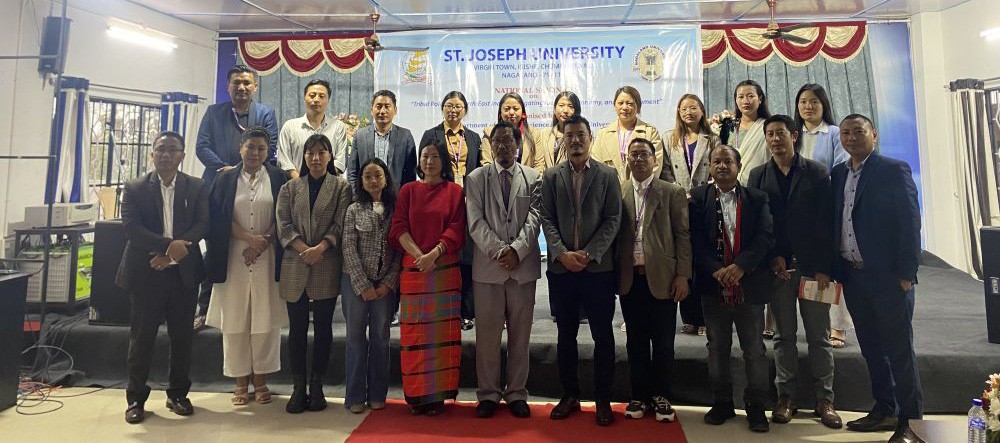
Chümoukedima, February 25 (MExN): The Department of Political Science at St Joseph University (SJU) Chümoukedima collaborated with Tribal Research Centre, Department of Sociology, Nagaland University to organise a national seminar titled “Tribal Politics in North-East India: Navigating Identity, Autonomy, and Development” on February 22.
The academic platform was aimed at delving into the intricate dynamics of tribal politics within the region and explores avenues for identity preservation, autonomy, and sustainable development, informed a press release from the Organising Committee.
In his keynote address, Dr Walter Fernandes, Director of the North Eastern Social Research Centre, Guwahati provided a comprehensive overview of the socio-political landscape of the NE shedding light on specific regional concerns such as ethnicity, language, indigeneity, identity, and autonomy, which distinguish the region from mainland India.
While protecting tribal land and identity remains crucial in the NE, equal importance should be given to development, he stressed.
He also noted a disparity in attention between preserving the past and considering future prospects, emphasising the need for a balanced approach.
While tribal customary law preservation is prioritised, Dr Fernandes highlighted the need for reform and modernisation and advocated for modifications to ensure gender and class equality within customary law and proposed facilitating land development alongside protection measures. He also endorsed community-driven initiatives for processing and marketing.
In the valedictory session, Dr Leban Serto, distinguished member of the Global Campaign for Peace Education, New York City and Director (Hon.) of the Centre for Peace Education in Manipur, urged students to join the global peace campaign while leveraging legal provisions to empower NE tribes.
He advocated that the tribals of NE India should draw strength from the legal and constitutional provisions in addressing their issues face by them and encouraged to voice tribal issues using pen and not gun and recognise education’s role in resolving violence.
The seminar comprised seven sessions, including the inaugural session, five parallel sessions, and the valedictory session.
A total of 31 paper presentations were delivered, representing 15 institutions from nine states across the country.
The presentations encapsulated multifaceted dimensions of tribal politics, social dynamics, cultural preservation, and socio-economic challenges and they revolved around themes such as ethnic diversity and inclusion politics, the release informed.
Environmental justice and sustainability also emerged as prominent topics, with discussions centering on the environmental concerns faced by tribal populations and the need for sustainable development practices tailored to indigenous contexts, it said.
It further delved into the imperative of youth inclusion in ethno-political realms while gender dynamics and women’s participation in tribal politics and society were also focal points, it added.
The presentations also underscored the significance of cultural preservation, traditional practices, and language revitalisation in shaping tribal identity and resilience
Economic development and livelihoods emerged as critical areas of inquiry, with scholars examining the implications of development initiatives and the growth of micro, small, and medium enterprises (MSMEs) on tribal communities’ socio-economic well-being, the Committee added.
Dr Somingam Mawon and Dr Shonreiphy Longvah, both Associate Professors at SJU, Chümoukedima, were the conveners of the seminar.



